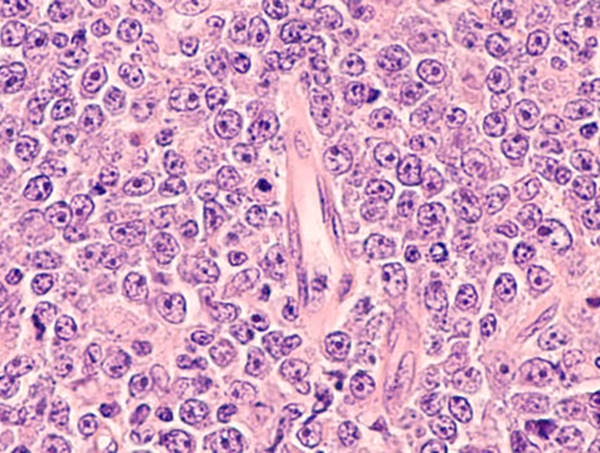Earlier-line Immunotherapy Treatment for Lymphoma
The FDA approved the cellular immunotherapy axicabtagene ciloleucel for second-line treatment of patients with large B-cell lymphoma.
The U.S. Food and Drug Administration (FDA) has approved axicabtagene ciloleucel (Yescarta) for the treatment of adult patients with large B-cell lymphoma who relapsed or did not respond to a first-line chemotherapy/immunotherapy combination. The therapy was previously approved in 2017 for patients with large B-cell lymphoma who had failed two or more prior treatments.
Axicabtagene ciloleucel is a type of cell-based immunotherapy called CAR T-cell therapy. For this treatment, immune cells called T cells are harvested from a patient’s blood, engineered to target a protein on the surface of cancer cells, and infused back into the patient to fight the cancer. Axicabtagene ciloleucel targets the receptor CD19, which is expressed in most blood cancers, including most large B-cell lymphomas.

The approval is based on data from a randomized, open-label, multicenter clinical trial of 359 patients with large B-cell lymphomas that either did not respond to first-line therapy or relapsed within 12 months of first-line therapy completion. The patients were randomly assigned to receive either a standard second-line therapy regimen or axicabtagene ciloleucel following chemotherapy.
The median event-free survival was 8.3 months among patients who received axicabtagene ciloleucel and 2.0 months among patients that received standard therapy. After 18 months of follow-up, the estimated event-free survival was 41.5 percent for patients treated with axicabtagene ciloleucel and 17 percent for patients treated with standard therapy.
Large B-cell lymphoma is the most common type of non-Hodgkin lymphoma. Because it develops in lymphatic tissue, it can be localized anywhere in the body, or it can be distributed throughout the body. According to federal statistics, an estimated 80,470 new cases of non-Hodgkin lymphoma will be diagnosed in the U.S. in 2022.
The FDA rendered its approval on April 1, 2022.